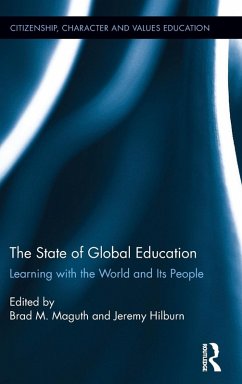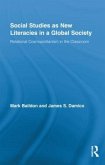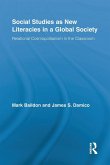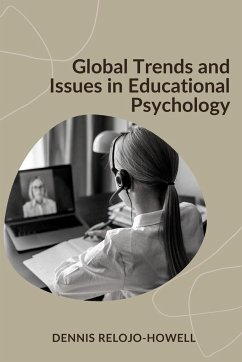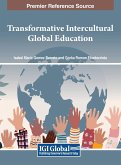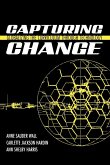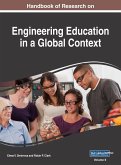Learning with the World and its People. In 1976, Robert Hanvey laid out the dimensions used by educators to foster global awareness in his foundational work An Attainable Global Perspective. In this volume, the author brings forth a new paradigm entitled Global Education 2.0, which is better aligned with the needs and technological advances of the 21st century. This framework focuses on ways in which students learn about world issues in and out of school, how this perspective can enhance students abilities to serve as stewards of their planet, and best practices that foster global learning and help build a sustainable future
A battle is being waged in classrooms and capitals around the world over the goals and objectives of the future of global education. While there is growing research in the area of global education, much remains to be uncovered, challenged, and learned through sound empirical research and conceptual explorations.¿What type of global citizens will schools promote?¿What types of policies, programs and instructional practices best promote effective global citizenship?¿Will global education curricula advance an unwavering loyalty to neoliberal ideologies and interests over the strengthening of human rights and the environmental health of our planet?¿This volume presents a series of research studies and innovative instructional practices centered on advancing global learning opportunities and literacies. The authors in this volume initiate a much needed conversation on ways students in multiple contexts can and should learn with the world and its people. Part I addresses global education in theory, with a particular focus on development, intercultural competence, and global citizenship. Part II addresses educational programs and practices that foster global learning and action to help build a better future for all citizens of our planet - including experiential education, university initiatives, and conceptual approaches to teaching and learning. This scholarship spans four continents in a multitude of educational contexts - primary, secondary, and tertiary - each with a focus on a different dimension of the possibilities and pitfalls in teaching about and with the world and its people.
Hinweis: Dieser Artikel kann nur an eine deutsche Lieferadresse ausgeliefert werden.
A battle is being waged in classrooms and capitals around the world over the goals and objectives of the future of global education. While there is growing research in the area of global education, much remains to be uncovered, challenged, and learned through sound empirical research and conceptual explorations.¿What type of global citizens will schools promote?¿What types of policies, programs and instructional practices best promote effective global citizenship?¿Will global education curricula advance an unwavering loyalty to neoliberal ideologies and interests over the strengthening of human rights and the environmental health of our planet?¿This volume presents a series of research studies and innovative instructional practices centered on advancing global learning opportunities and literacies. The authors in this volume initiate a much needed conversation on ways students in multiple contexts can and should learn with the world and its people. Part I addresses global education in theory, with a particular focus on development, intercultural competence, and global citizenship. Part II addresses educational programs and practices that foster global learning and action to help build a better future for all citizens of our planet - including experiential education, university initiatives, and conceptual approaches to teaching and learning. This scholarship spans four continents in a multitude of educational contexts - primary, secondary, and tertiary - each with a focus on a different dimension of the possibilities and pitfalls in teaching about and with the world and its people.
Hinweis: Dieser Artikel kann nur an eine deutsche Lieferadresse ausgeliefert werden.

